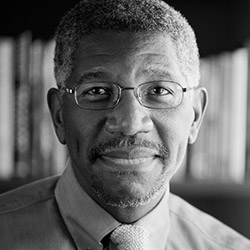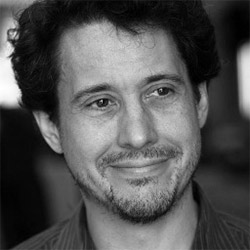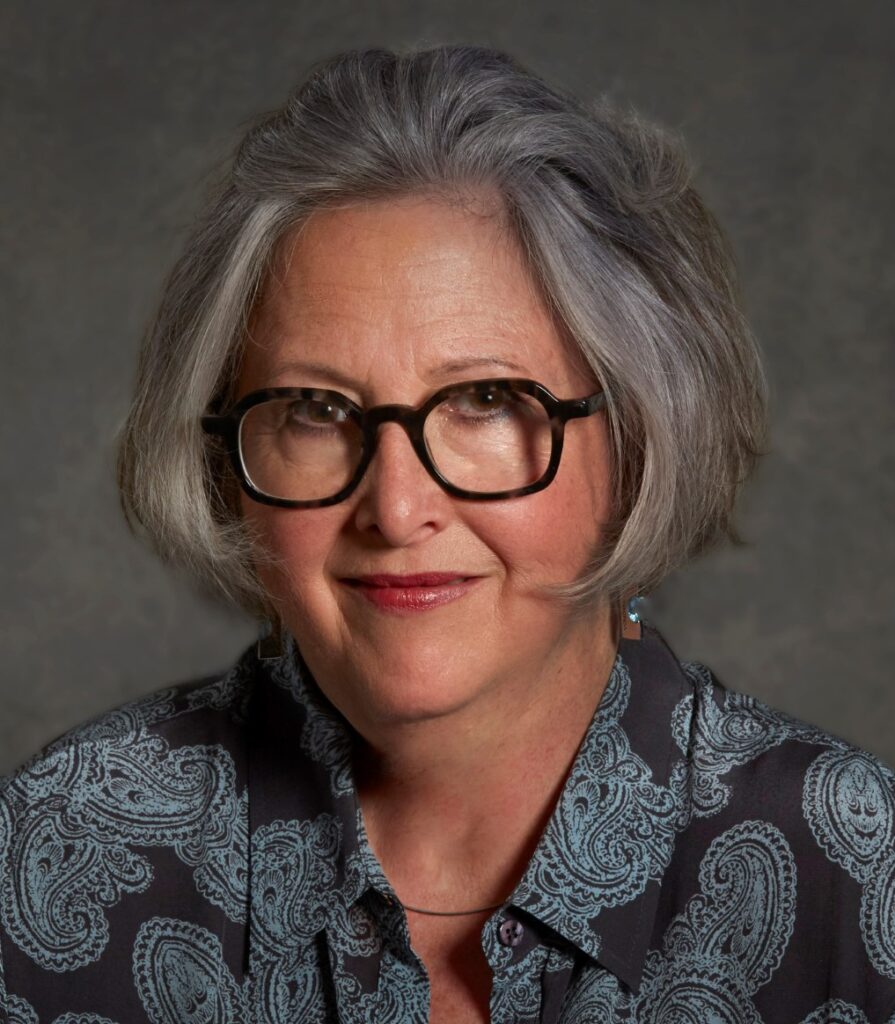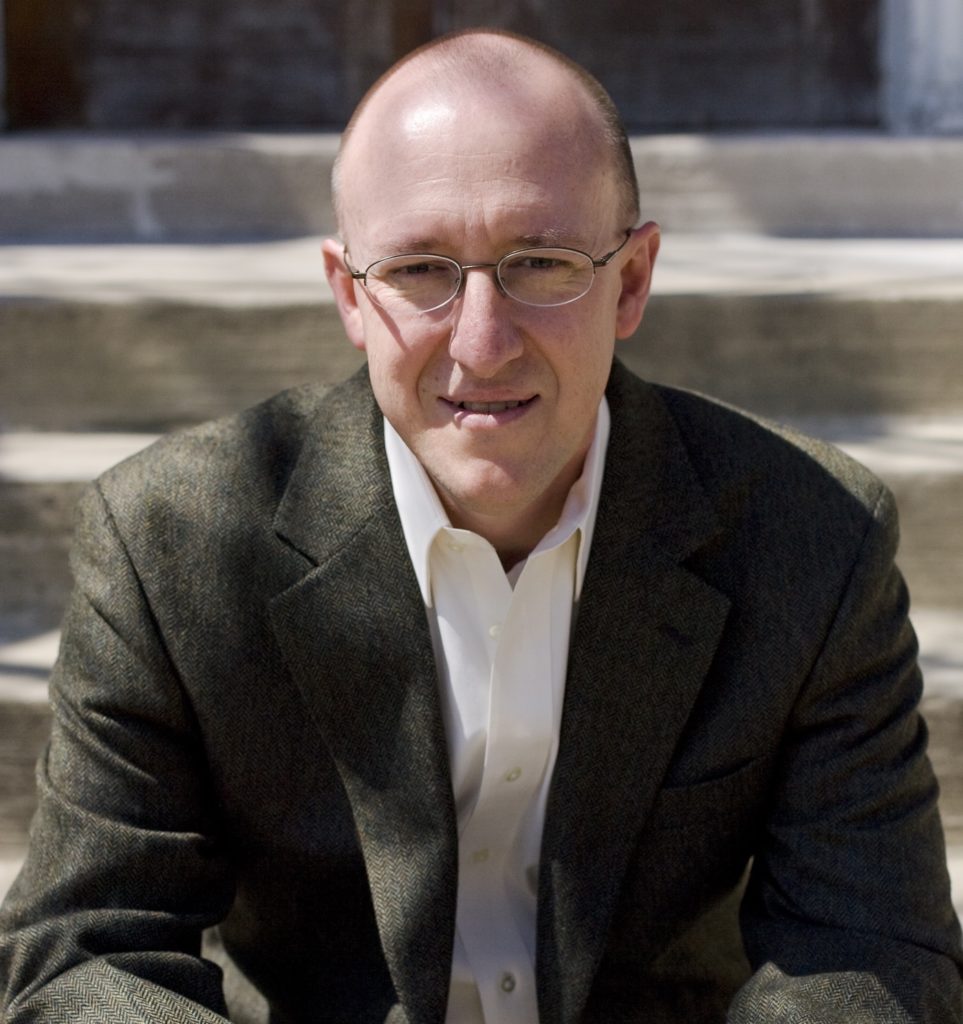About The Common Reader
The Common Reader is published by Washington University in St. Louis online monthly.
Disclaimer: The opinions, beliefs, and viewpoints expressed by the various authors and forum participants on this website do not necessarily reflect the opinions, beliefs and viewpoints of The Common Reader, Washington University in St. Louis, or official policies of Washington University in St. Louis and The Common Reader.
Mission Statement
The Common Reader is published online and in print to further the intellectual reputation of Washington University in St. Louis as an international thought leader. Through freshly conceived, smartly written and rigorously argued articles, reviews and creative non-fiction drawn from diverse perspectives The Common Reader will engage the scientific and artistic ideas, social issues and current controversies of our time.
Gerald Early is the Merle Kling Professor of Modern Letters in the Department of English and professor in the African and African-American Studies Program at Washington University in St. Louis, where he has taught since 1982. He also has an appointment in the American Culture Studies Programs at Washington University. He earned his undergraduate degree in English from the University of Pennsylvania and Ph.D. in English and American literature from Cornell University.
He has served as director of the African and African-American Studies Program, of the American Culture Studies Program, and of the Center for the Humanities. He is currently faculty director of the Henry Hampton Film Archive and the executive editor of The Common Reader, Washington University’s new interdisciplinary journal published under the auspices of the Provost. From 2009-2012, Early served on the advisory committee for tenure, promotion, and personnel. He was the director of the African and African-American Studies Program from 1992 to 1999.
Early is a noted essayist and American culture critic. His collections of essays include Tuxedo Junction: Essays on American Culture (1989); The Culture of Bruising: Essays on Prizefighting, Literature, and Modern American Culture, which won the 1994 National Book Critics Circle Award for Criticism; This is Where I Came In: Essays on Black America in the 1960s (2003), and, most recently, A Level-Playing Field: African American Athletes and the Republic of Sports (2011). He is also the author of Daughters: On Family and Fatherhood (1994). He was twice nominated for Grammy Awards for writing album liner notes, of which Early has written many including Black Power: Music of a Revolution (2004), Miles Davis, Kind of Blue: 50th Anniversary (2009), Q: The Musical Biography of Quincy Jones (2001), Vee-Jay: The Definitive Collection, (2007), Motown: The Complete Motown Singles, Volume 2: 1962, The Sammy Davis Jr. Story, (1999), and Rhapsodies in Black: Music and Words from the Harlem Renaissance (2000).
Additionally, Early is a prolific anthologist. His most recent edited books are the Best African American Essays 2010 with guest editor Randall Kennedy and Best African American Fiction 2010 with guest editor Nikki Giovanni. Both are part of the annual Best African American Essays and Best African American Fiction series published by Bantam Books for which Early served as the series editor during the life of the series. His other anthologies include The Sammy Davis, Jr. Reader (2001); Miles Davis and American Culture (2001); The Muhammad Ali Reader (1998); and Body Language: Writers on Sport (1998). He has served as a consultant on several Ken Burns’ documentary films—Baseball; Jazz; Unforgivable Blackness: The Rise and Fall of Jack Johnson; The War, The Roosevelts: An Intimate History, and an upcoming film on the life of Jackie Robinson—all of which have or will be aired on PBS.
Early is an elected fellow of the American Academy of Arts and Sciences, and twice guest-edited the Academy’s journal, Daedalus: the winter 2011 issue entitled “Race in the Age of Obama” and the fall 2013 issue entitled “American Music.” He serves on a number of non-profit boards in St. Louis including the Missouri History Museum, the Foundation Board of the St. Louis Public Library, Jazz St. Louis, and the Whitaker Foundation. He is also currently a member of the Board of Trustees of the National Humanities Center, where he enjoyed an appointment as the John Hope Franklin Fellow in 2001-2002. He was nominated by President Obama to serve on the National Council on the Humanities, was confirmed by the Senate and began his five-year term in August 2013. He was awarded a star on the St. Louis Walk of Fame in 2013. He is currently completing The Cambridge Companion to Boxing for Cambridge University Press. He is also completing a book with his daughter, Rosalind, a professional journalist, about an African-American festival in Philadelphia called Odunde, one of the largest black street festivals in the country and the biggest public event for adherents of the Yoruba religion in the United States. His longer-term projects into a study of the Korean War and a book about conservatism in the United States.
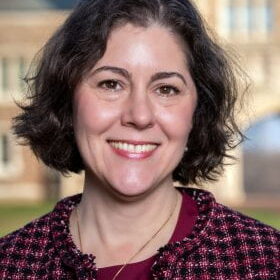
Beverly Wendland
Provost of Washington University in St. Louis,
Publisher of The Common Reader
Prior to joining Washington University in 2020, Wendland served since 2015 as the James B. Knapp Dean of the Krieger School of Arts & Sciences at Johns Hopkins University. As dean, she oversaw twenty-two highly ranked academic departments representing the natural sciences, social sciences, and humanities. During her tenure as dean, Beverly led the Krieger School of Arts & Sciences through a capital campaign that raised $747 million, and was instrumental in the establishment of the SNF Agora Institute, a hub for research, teaching, and practice to strengthen global democracy. Wendland was a member of the Johns Hopkins Department of Biology faculty since 1998 and served as chair 2009-2014. She earned her bachelor’s degree in bioengineering from the University of California, San Diego, and her doctoral degree in neurosciences from Stanford University.
Wendland’s research focuses on fundamental cellular processes using yeast as a simple model system. The author of numerous scholarly publications, she was recognized in 2015 as a fellow of the American Association for the Advancement of Science for her innovative work on the genetic, molecular, biochemical, and biophysical mechanisms underlying the cellular process endocytosis. Her research has been funded by the National Institutes of Health (NIH) and the National Science Foundation, and her many honors and awards include the Burroughs Wellcome Fund New Investigator Award in the Pharmacological Sciences and the March of Dimes Basil O’Connor Award.
Fulton worked as an education and features reporter at The Salt Lake Tribune, covering arts and education for Utah’s major daily newspaper. Before that he worked as editor of Salt Lake City Weekly, Utah’s alternative newsweekly, leading an award-winning team of staff writers and section editors. Fulton’s work has been published in New York’s Newsday, and garnered regional awards, including Best of the West and Top of the Rockies.
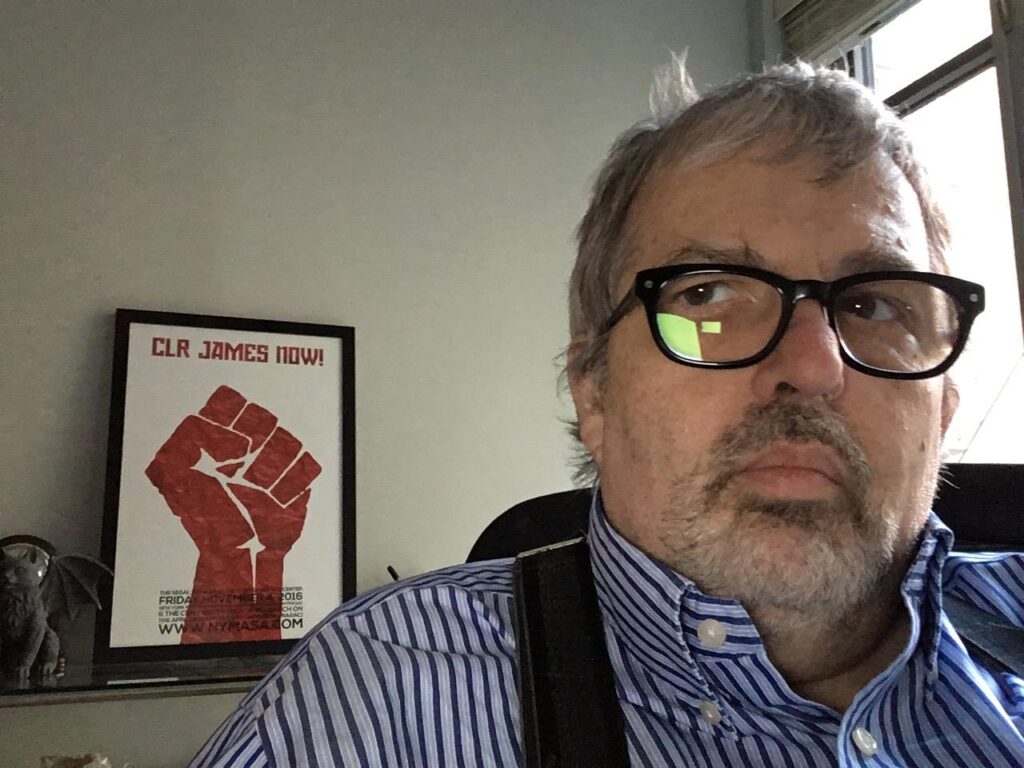
Scott McLemee
Book Review Editor
Scott McLemee is an essayist and critic who has written for numerous magazines, newspapers, and online publications in the United States and abroad. He was a contributing editor to Lingua Franca, a much-celebrated magazine on academic life from the 1990s, and later covered the humanities as a senior writing for The Chronicle of Higher Education. Since 2005 he has contributed a column on books and ideas for the online news journal Inside Higher Ed. In 2014 he received the National Book Critics Circle award for excellence in reviewing and was a National Magazine Award finalist the following year. The editor of two volumes off writings by the Caribbean political and cultural figure C.L.R. James, with two more in preparation, he appeared in the documentary Every Cook Can Govern: The Life, Impact & Works of C.L.R. James. He and his wife Rita live in Washington, D.C. with their two cats.
A member of the St. Louis Media Hall of Fame, Jeannette Cooperman was the staff writer at St. Louis Magazine for twelve years. She was named Writer of the Year at the 2019 City & Regional Magazine Awards, and she was named to the 2017 FOLIO: 100 list of “the best and brightest” in the magazine industry nationwide. Cooperman spent a decade doing investigative reporting for Riverfront Times, where her work was recognized by the National Education Writers Association, the National Mental Health Association, the National Black Journalists Association, the National Gay and Lesbian Journalism Association, and the Society of Environmental Journalists. She holds degrees in philosophy and communication and a Ph.D. in American studies, and she has written five books—four of them dealing with history, literature, and social psychology, and one a murder mystery. She and her husband, a historian, live with Louie, an overeager standard poodle, in a century-old farmhouse in Waterloo, Illinois.
Griswold’s most recent book is a collection of essays, Pirates You Don’t Know, and Other Adventures in the Examined Life (University of Georgia Press). His forthcoming book about veterans at Standing Rock is under contract. He is the founding Series Editor of Crux, a literary nonfiction book series at University of Georgia Press.
Shaye Herman
Editorial Intern
Shaye Herman is a rising sophomore at Washington University in St. Louis, intending on majoring in American Culture Studies with a double minor in English Literature and Film and Media Studies. During her gap year, she began working towards an editing and publishing certificate at UCLA Extension. Her coursework included editing full-length manuscripts and writing editorial letters, readers’ reports, acquisitions letters, and book pitches. She wrote her high school senior capstone paper on how Lemony Snicket’s A Series of Unfortunate Events comments on and subverts eighteenth- and nineteenth-century fairy tale tropes. She lives in New Jersey with two very small, very old Maltese dogs.
Contributing Editors
Clarissa Rile Hayward, Professor of Political Science at Washington University in St. Louis. Hayward is a political theorist focussing on questions central to political life. She earned her Ph.D. from Yale University, and her latest book is How Americans Make Race: Stories, Institutions, Spaces (Cambridge University Press, 2013).
Kelsey Klotz is a Postdoctoral Fellow with the Fox Center for Humanistic Inquiry at Emory University. She has a Ph.D. in musicology from Washington University in St. Louis. Her research focuses on the cultural construction of cool jazz around narratives of white privilege and emphasizes the lived experiences and sounds produced by Black and White musicians.
Edward McPherson, Assistant Professor of English at Washington University in St. Louis, is author of two nonfiction books Buster Keaton: Tempest in a Flat Hat (Faber & Faber) and The Backwash Squeeze and Other Improbable Feats (HarperCollins). He has written for The New York Times Magazine, Salon, The Paris Review, Tin House, The American Scholar, The Gettysburg Review, The New York Observer, I.D., Esopus, Epoch, and Talk, among others.
Clifford Thompson is the 2013 winner of the Whiting Writers’ Award for nonfiction and author of Love for Sale and Other Essays and the novel Signifying Nothing. Born in Washington, D.C., he studied creative writing at Oberlin College and lives in Brooklyn, New York.
Editorial Board
Ken Burns, Academy and Emmy award-winning director and producer of documentary films, including The Civil War (1990), Baseball (1994), Jazz (2001) and The National Parks: America’s Best Idea (2009). Resides in Walpole, New Hampshire and alumnus of Hampshire College.
Robert Campbell, architect and 1996 Pulitzer Prize-winning architecture critic for the Boston Globe. Campbell is architect-in-residence at the American Academy in Rome in 1997, and Fellow of the American Academy of Arts and Sciences. Phi Beta Kappa graduate of Harvard College , and graduate of Columbia Graduate School of Journalism and Harvard Graduate School of Design. Resides in Cambridge, Mass.
Ramanth Cowsik, the James S. McDonnell Professor of Space Sciences in Arts & Sciences and Director of the McDonnell Center for the Space Sciences at Washington University in St. Louis. Cowsik’s primary scientific interests involve energetic phenomena in astrophysics and those powered by accretion flows. He invented the ‘leaky-box’ and ‘nested-leaky box’ models used to interpret observations of cosmic rays. Cowsik’s paper describing the role of neutrinos and other weakly interacting particles in cosmology as dark matter was chosen by the American Physical Society in its heritage collection of 1,000 seminal papers. He received his doctoral degree in physics from the Tata Institute of Fundamental Research in Bombay University.
Kevin Gaines, professor of history at University of Michigan. Specialist in topics of U.S. and African-American intellectual and cultural history; race and gender politics in post-WWII United States and the global dimensions of U.S. struggles over the meaning and definition of citizenship. Doctoral degree from Brown University, he resides in Ann Arbor.
Steven Fazzari, professor of economics at Washington University in St. Louis. Fazzari specializes in macroeconomic links to investment, finance and Keynesian macroeconomic principles. He is currently co-editing a book exploring the origins and responses to the Great Recession. Recipient of several teaching and distinguished faculty awards, he is an alumnus of Stanford University, where he earned his doctoral degree, he resides in St. Louis.
Denise Head, Associate Professor of psychology, research assistant of radiology and assistant professor of African and African-American studies at Washington University in St. Louis. Professor Head is a research specialist in age-related brain changes and effects on cognition. Alumna of University of New Orleans, with a doctorate from University of Memphis. Resides in St. Louis.
Anne Jamison, associate professor of English at University of Utah. Author of Fic: Why Fanfiction is Taking Over the World (Smart Pop, 2013) specialist in the literature of the Czech Republic, Germany, France, and the United Kingdom of Great Britain and Northern Ireland. B.A. Barnard College, M.A. University of London, Doctor of Philosophy, Princeton University. Resides in Salt Lake City.
Neal Lane, physics professor and former Provost of Rice University, where he now lectures on physics and public policy. Lane served President Bill Clinton as Assistant for Science and Technology, and director of the White House Office of Science and Technology Policy, 1998-2001. Lane also served as director of National Science Foundation from 1993-1998. A specialist in theoretical physics, Lane earned his bachelor’s and doctoral degrees from University of Oklahoma.
Kenneth Manning, Thomas Meloy Professor of rhetoric and the history of science at the Massachusetts Institute of Technology. Author of Black Apollo of Science: The Life of Ernest Everett Just (Oxford University Press, 1983) finalist for the 1984 Pulitzer Prize for Biography or Autobiography. Bachelor’s, master’s and doctoral degrees from Harvard University. Resides in Boston.
Greil Marcus, music journalist and author of books such as Mystery Train: Images of America in Rock ‘n’ Roll Music (Plume, 1975) and Invisible Republic: Bob Dylan’s Basement Tapes (Henry Holt, 1997). An alumnus of University of California, Berkeley, Marcus esides in Oakland, Calif.
William Peck, M.D. Alan A. and Edith L. Wolff Distinguished Professor of Medicine at Washington University in St. Louis and former dean of the School of Medicine. Peck, currently director of WUSTL’s Center for Health Policy, is author of 100 scientific publications on bone and mineral metabolism. Alumna of Harvard College and University of Rochester School of Medicine, he resides in St. Louis.
Joe Posnanski, sports journalist and former columnist for The Kansas City Star and former senior columnist for Sports Illustrated. Author of The Soul of Baseball: A Road Trip Through Buck O’Neil’s America, winner of the CASEY Award for best baseball book of 2007, he was also named National Sportswriter of the Year in 2012 by the National Sportscasters and Sportswriters Association. A recent blog post on his website “Joe Blog” was nominated for the National Magazine Award. He resides in Charlotte, North Carolina.
Don Randel, former president of Cornell and University of Chicago, former head of the Mellon Foundation, current Chairman of the Board of the American Academy of Arts and Sciences.
Peter Raven, botanist, environmentalist and president emeritus of the Missouri Botanical Garden. Raven is co-author with Ray F. Evert and Suan E. Eichhorn of the textbook Biology of Plants. Alumnus of University of California, Berkeley, and University of California, Los Angeles, where he earned his doctorate. Raven resides in St. Louis.
Deepak Sarma, professor of Hinduism and Indian philosophy at Case Western Reserve University. One of the first western-trained scholars of Madhva school of Vedanta (i.e., Veda texts of the Upanishads) Sarma received his doctoral degree in the philosophy of religions from the Divinity School at the University of Chicago. He edited Hinduism: A Reader (Blackwell, 2007) and Classical Indian Philosophy: A Reader (Columbia University Press, 2011). He resides in Cleveland.
Walton Schalick, M.D., PhD., medical director and physician supervisor at Central Wisconsin Center’s Department of Orthopedics & Rehabilitation; assistant professor in the department of history at University of Wisconsin’s Institute for Research on Poverty, Center for Financial Security, Medieval Studies and Disability Studies.
Curtis Sittenfeld, novelist Sittenfeld is the best-selling author of Prep, American Wife and Sisterland; alum of Vassar College and Stanford University with MFA from Iowa Writers’ Workshop. A native of Cincinnati, she resides in St. Louis with her husband and children.
Executive Committee
Richard Axelbaum, Professor of Energy, Environmental & Chemical Engineering
Rebecca Susan Dresser, Daniel Noyes Kirby Professor of Law and Professor of Ethics in Medicine
Wayne Fields, Lynne Cooper Harvey Distinguished Professor in English in Arts & Sciences
Kenneth Ludmerer, Professor of Medicine and of History in Arts & Sciences, Mabel Dorn Reeder Distinguished Professor in the History of Medicine
Robert McCarter, Ruth and Norman Moore Professor of Architecture at the Sam Fox School of Design & Visual Arts
Mark P. Taylor, Dean, John M. Olin School of Business and Donald Danforth Jr. Distinguished Professor of Finance
Alan Templeton, Charles Rebstock Professor of Biology in Arts & Sciences Emeritus
Julia A. Walker, Associate Professor of Drama and English, both in Arts & Sciences; Director of Graduate Studies in the Performing Arts Department in Arts & Sciences
James Wertsch, Vice Chancellor for International Affairs, Director of the McDonnell International Scholars Academy and the Marshall S. Snow Professor in Arts & Sciences
Carol Camp Yeakey, The Marshall S. Snow Professor of Arts & Sciences, Founding Director, Interdisciplinary Program in Urban Studies & Center on Urban Research & Public Policy
Submit to us
The Common Reader welcomes the submission of previously unpublished articles, reviews, analysis, reporting and even digital video and photography/illustration works. We seek material that makes our readers think, laugh or look at the world in a different way.
Except for poetry and fiction—already accommodated by literary publications nationally and worldwide—The Common Reader will cover a full range of topics. Your submission can be just as wide-ranging, from a profile on a lesser-known or ignored figures or events, to a new twist on familiar scientific and artistic ideas, or first-hand reports from St. Louis and the surrounding Midwest, nationally, and even pressure-points and exotic locales worldwide.
Our twofold request is as simple as it is difficult: Make it interesting, and factual.
All unsolicited submissions will be rigorously reviewed by members of our editorial board for suitability.
Only submissions sent by post, with your email address for possible future correspondence, will be considered. We are not responsible for lost manuscripts, and will not return any manuscript unaccompanied by an SASE. Our mailing address is The Common Reader Submissions, Washington University in St. Louis, Campus Box 1098, One Brookings Drive, South Brookings, Suite 200, St. Louis, MO 63130-4899.
